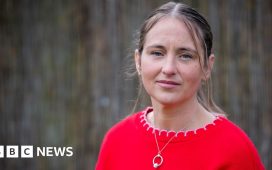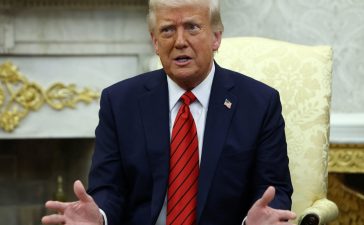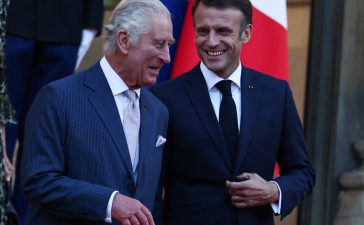Junior doctors’ leaders say they are prepared to stage yet more strike action after the longest stoppage in NHS history, unless ministers make them a new offer to end the bitter pay row.
The current action – due to end at 7am on 9 January – is the ninth time they have stopped working since last March and the longest strike to hit the health service since it was founded in 1948.
But as thousands of junior doctors went on strike again on Wednesday in England, Vivek Trivedi, the co-chair of the British Medical Association’s junior doctors’ committee, issued a fresh warning that further strikes were not being ruled out.
Trivedi confirmed junior doctors would be willing to accept the 35% pay rise they have demanded over “a number of years” but ministers have repeatedly said 35% is unaffordable.
With no end to the dispute in sight on the first day of the 144-hour stoppage, Trivedi said junior doctors might have little choice but to strike again and again in 2024.
“If the government stall, or they don’t come to the table, or they make excuses, or they try to push things down the line without any clear reason as to why that is happening … then we will be led by our members.
“In the past when those kinds of actions have been displayed by the government, our members have wanted us to call for further strike action. I hope that we don’t have to go there but I can’t rule it out.”
The prospect of further strike action will alarm NHS chiefs already grappling with an enormous waiting list for care that has spiralled to 7.7 million.
Hospital bosses said the next six days would be “incredibly tough”. Some expressed fury that the BMA and the government had failed to reach an agreement for “months and months”.
Nick Hulme, the chief executive of East Suffolk and North Essex NHS foundation trust, said “patients are paying the price” as the strikes continue.
Trivedi insisted junior doctors were “not hellbent on strikes” and hoped the government would resume talks swiftly.
“The notion that we’re hellbent on calling strikes and all we want to do is call strikes is not what we want. What we want is to negotiate an offer we can put to our members and for our members to accept it.”
The industrial action, from 7am on Wednesday 3 January to 7am on Tuesday 9 January, comes at one of the busiest times of the year for the NHS as it faces heightened pressure from winter viruses and a surge in people coming forward who delayed seeking help over Christmas and the new year.
The NHS has warned that the strike, with as much as half of the medical workforce in England stopping work, could lead to “the most difficult start to the year the NHS has ever faced”.
after newsletter promotion
It said emergency and urgent care would be prioritised during the strikes and almost all routine care would be affected. Patients are being urged to still come forward to seek care if they need it.
Dr Layla McCay, the director of policy at the NHS Confederation, told LBC Radio: “Plans have been put in place and people have been working very, very hard on these rotas.
“But the rotas are just about covered, so it only takes a consultant or two to go off sick – which, of course, there’s a lot of Covid and flu, norovirus, other winter viruses around at the moment and a couple may go off sick – then that is going to put the entire plan in jeopardy, which is why the leaders across the NHS are so concerned that this is skating on thin ice.”
The health secretary, Victoria Atkins, said: “January is typically the busiest time of the year for the NHS and these strikes will have a serious impact on patients across the country.
“I urge the BMA junior doctors’ committee to call off their strikes and come back to the negotiating table so we can find a fair and reasonable solution to end the strikes once and for all.”











